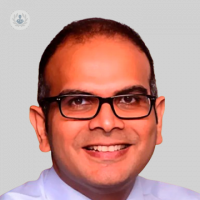Understanding pancreatic cancer: Causes, symptoms, and treatment options
Autore:Pancreatic cancer is an aggressive form of cancer that develops in the tissues of the pancreas, an organ behind the stomach responsible for aiding digestion and regulating blood sugar. Though pancreatic cancer is relatively rare, it is known for its severity due to typically late detection and rapid progression. It most commonly affects individuals over the age of 65, and early detection significantly improves treatment outcomes.

Causes
The exact causes of pancreatic cancer are not fully understood, but certain risk factors have been identified. Smoking, chronic pancreatitis, a family history of pancreatic cancer, diabetes, and obesity are some of the most commonly associated risk factors.
Genetic mutations, such as those found in BRCA genes, can also play a role. Lifestyle factors, including diet and physical activity levels, can further influence risk, with those who smoke or are significantly overweight at a heightened risk.
Symptoms
Symptoms of pancreatic cancer often appear only in later stages, contributing to the difficulty in early diagnosis. Common symptoms include jaundice (a yellowing of the skin and eyes), abdominal or back pain, unexpected weight loss, fatigue, and changes in stool or urine colour.
As the tumour grows, it can press on nearby organs or block the bile duct, causing these noticeable symptoms. Because these symptoms can resemble those of other, less serious conditions, it’s important to consult a healthcare provider for further testing if they persist.
Diagnosis
Diagnosis typically involves imaging tests such as CT scans, MRIs, and ultrasounds, as well as blood tests and biopsy procedures to confirm the presence of cancerous cells. Treatment options vary depending on the stage and spread of the cancer, with surgery, chemotherapy, and radiation therapy as the most common approaches.
In the early stages, surgical removal of the tumour may be possible, while advanced stages may focus on slowing progression and alleviating symptoms. Emerging treatments, such as immunotherapy, are showing promise in certain cases but are still in development.
Management
Managing pancreatic cancer can be challenging, and it often requires a multidisciplinary approach that includes oncologists, surgeons, and supportive care specialists. With ongoing research into earlier detection methods and new treatments, there is hope for improving outcomes and quality of life for those diagnosed with pancreatic cancer.


